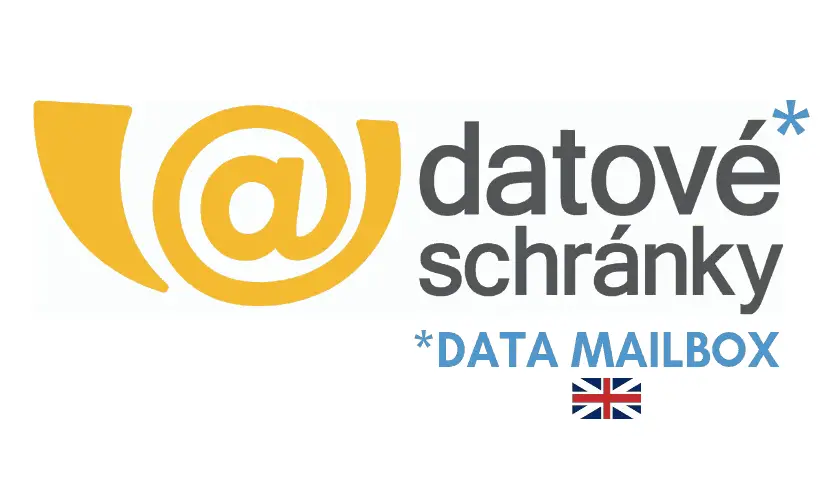Dealing with your Czech tax return can be a pretty confusing experience. But it doesn’t have to be if you get the basics straight. Not everyone needs to file their Czech taxes and deal with tax return, certainly not every foreigner. While the basic rule of thumb is simple: multiple sources of income = you have to submit your own tax return in Czech Republic, there is a great deal of nuance to it. For example, your tax residence status plays a major role in what the Czech Tax Office expects from you. So, in this article I decided to prepare an overview of the main differences between what the government considers a Czech tax resident vs. tax non-resident. Also, I’ll bring you some clear examples when you absolutely don’t need to worry about filing your Czech taxes.

Please note, I do not have professional qualification to provide legal or tax advice. Information gathered in this article simply reflects my own experience and research on the topic. Use it as general guidance only.
Who should file a Czech tax return?
Tax residents of Czech Republic
Every person who stays in Czech Republic for at least 183 days during one calendar year, is a Czech tax resident. It doesn’t have to be 183 days in one go. It can be an accumulated period of stay throughout the year. You are also a tax resident if you simply permanently live in Czech Republic, or you intend to do so. Of course, provided you can prove that by, for example, a work or flat rental contract for over 183 days. A Czech tax resident should file their taxes in Czech Republic and declare all their global income here. This also means they can apply all Czech tax deductions and discounts while filing their tax return here.
What is global income for Czech tax purposes?
In this sense the word “global” means that it doesn’t matter if you obtained your income or part of it from another country. You still have to declare all your income in your Czech tax return.
At the same time, it doesn’t necessarily mean you’ll have to pay taxes on income you obtained in another country (e.g. if it has already been taxed abroad). Czech Republic has bilateral agreements with most countries that prevent double taxation. You can access an overview of current agreements following that link, but unfortunately the documents are in Czech. If your foreign income has already been taxed abroad, then typically you just need to show that income in your Czech tax return. In that case, such foreign portion of your income will be exempts from Czech tax liability even though you show it in your tax return.
If you actually have income from multiple countries, I recommend you skip to the bottom of this article and find a professional tax adviser. Otherwise keep reading.
How to become a Czech tax resident?
Now when you know the definition of a Czech tax resident, let’s see how you should become one “on paper”. You need to…
- fill in the form called Vzor žádosti o vydání potvrzení o daňovém domicilu, which you can download from this section of the Tax Office’s website,
- take copies of several documents proving that you’ve been living here for over 183 days, or that you intend to do so – flat rental contract, work contract or your residence permit are all pretty good options,
- buy a 100 CZK worth stamp (kolek) at any Czech Post office,
- go to the Tax Office based on your address of registration (e.g. select your Prague district from the drop-down menu following that link),
- when you get there, find the office/counter called Registrace and hand them over everything you brought.
They will give you the confirmation for your accountant, which will also include your unique tax ID number. This tax number serves to match your Tax Return to you when you submit it, or your employer’s accountant does.
At some Tax Offices they give you the confirmation on the spot. However, keep in mind that by the law they have up to 30 days to issue it for you. It will be mailed to you via post in case you don’t get it immediately.
Tax non-residents of Czech Republic
A Czech tax non-resident is basically the exact opposite of a tax resident – an individual who doesn’t permanently live in Czech Republic and who spent less than 183 days in the country. In addition to that, if the only purpose of your stay in Czechia is studies or receiving medical care, you are also a tax non-resident. That implies that your visa or residence permit is issued for one of those two purposes, if you are a non-EU citizen.
Tax non-residents should only file their Czech tax return in case they obtained some income sourcing from Czech Republic. You must tax such income here, therefore you will need to file a Czech Tax Return and declare this income. But then again, thanks to bilateral agreements about prevention of double taxation, this income will only be taxed in Czech Republic, but not in the country which you are a tax resident of.
Non-residents who have at least 90% of their income sourcing from Czech Republic, and who are also citizens of EU / EFTA, can choose to submit their tax return here. That will allow them to utilize most tax deductions and discounts when calculating their income tax, as if they were a resident here.
Who doesn’t need to file a Czech tax return?
Regardless of your tax residence status in Czech Republic there are some cases when you don’t need to worry about filing any tax return in Czech Republic. In these cases it’s either that the law doesn’t require that, or somebody will do it on your behalf. Let’s look at some of the most typical examples.
When employment is your only source of income in Czechia
If your Czech salary is your only source of income, it’s time to visit your payroll team. Your employer’s accountant can (and most likely will) submit your tax return for you, on your behalf. This is true for Czech tax residents as well as for tax non-residents in this country. It’s important to mention though, this only works if the following conditions are met:
- Throughout the tax year you only work for one employer at a time. It’s ok if you had multiple employers, but never several of them simultaneously.
- In the first quarter of the next year after the tax year at question, you sign a so called Růžový papír or Růžový formulář and hand it over to your employer’s accountant. This is basically a pink form that specifies what kind of tax deductions and discounts you are eligible for. It allows your employer’s accountant to apply some discounts on monthly bases, as opposed to you applying it all at once in your tax return.
In this case the accountant will most likely ask you to provide a paper proving your tax residency in Czech Republic or tax domicil (daňový domicil), see above.
Occasional income up to 30000 CZK per year
If your only income during the fiscal year came from occasional activities and didn’t exceed 30000 CZK, don’t worry about Czech taxes, tax return etc. I wrote about this scenario earlier in my “When you don’t need to pay income tax in Czech Republic” article. Don’t forget to check it out if you don’t want to pay more taxes than you should.
DPP contract work (most relevant for working students)
Foreign students are tax non-residents in Czech Republic. Therefore, by default they would need to declare only income that originated from within Czechia. But there is one notable exception here, that is relevant for students, and not only for them. And that’s the case when all your income is coming from a typical Czech DPP (Dohoda o provedení práce) type of contract. In this scenario you would normally just let your employer pay 15% income tax (Srážková daň) on your behalf every month. Later, you wouldn’t need to deal with any Czech Tax Return for this. However, note that when I say a typical DPP contract I mean the following two conditions were met:
- your DPP with different employers throughout the year didn’t exceed 300 hours of work per year for any of them
- you earned 10000 CZK / month or less with each of those contracts, therefore there is no liability on you to pay social and health insurance from this income.
But even in case of DPP contract work, you might still decide to file your Czech Tax Return. The thing is, it will allow you to claim all your deductions and discounts (e.g. basic student discount). As a result, you will be able to get some of your paid income tax back. Check out my article about Czech tax deductions to learn more about this. And in case you decide to submit your tax return, you may want to know more about filing your Czech tax return process, so be informed.
Like this article? Do you want me to continue writing more of this kind of breakdowns? Then consider supporting me by buying me a coffee. You can also join my group of professionals in Prague, to network and help me spread the word about this website. 😉 Thank you!
Learn more about Czech taxes in English
- Czech tax advisers who speak English. Recommended by expats.
- Czech tax return: tax deductions and discounts you should know about
- When you don’t need to pay income tax in Czech Republic?
- Use a data mailbox to sort your Czech income tax online and handle other bureaucracy
- Czech tax return: should you submit it yourself? Czech tax resident vs not.


